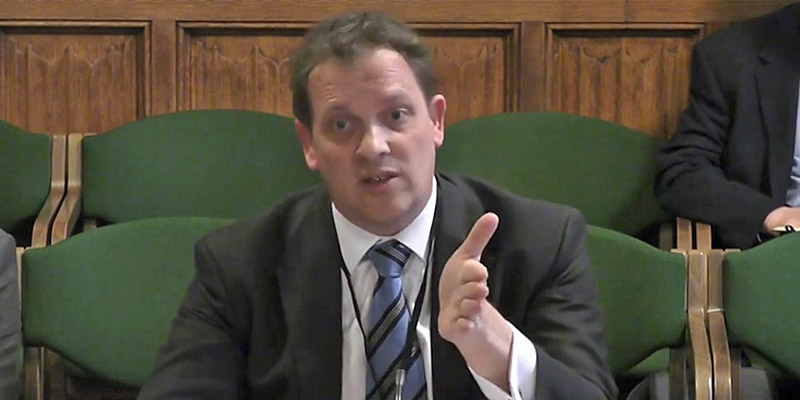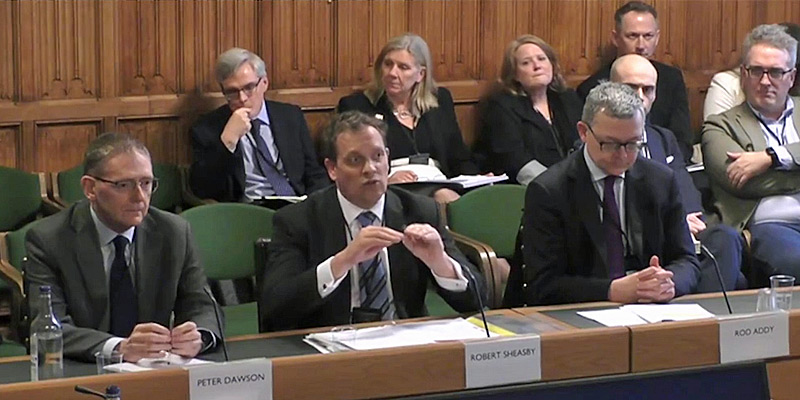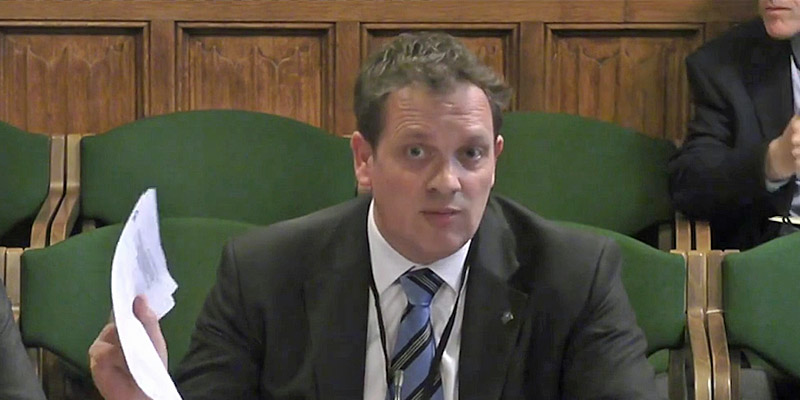Video: Enhance food security to support UK food supply chain fairness, AIC tells MPs

Improving the UK's long-term food security will help to ensure fairness in the supply chain and protect against the inflationary impacts of global market volatility, the Agricultural Industries Confederation has told MPs.
As part of an inquiry into "Fairness in the Food Supply Chain", yesterday (19 March) the Environment, Food and Rural Affairs (Efra) Committee heard evidence from AIC and other trade bodies, as well as food processors and manufacturing businesses.
AIC's Chief Executive Robert Sheasby appeared alongside Peter Dawson, Policy & Sustainability Director at Dairy UK, and Rod Addy, the Provision Trade Federation's Director General.
Representatives from Arla Foods, Associated British Foods, Kraft Heinz and Unilever also gave evidence during the Committee session.
Watch the video highlights from the Efra Committee session.
Confidence to invest
The session saw MPs examine the impact of inflation on suppliers' and manufacturers' costs and explore how food production costs, food prices and retail prices interact.
"[Regarding] managing inflation, I would support having a land use strategy because that way you start to give a clear signal about encouraging inward investment in UK businesses - then there's a confidence," explained Mr Sheasby.
"Tie that up with food security and suddenly you've got a production base in the UK that knows what it's going to do, knows the policy framework of what the wishes of government are, and then it can meet that demand.
"Then you start to protect yourself from global volatility because you have a degree of home production, which can help even out some of those shifting global markets."
Food security
AIC is calling for a statutory UK Food Security Committee to be established to operate independently of government and short-term parliamentary cycles, providing a cross-Whitehall, cross-UK oversight of what recent events have highlighted as a critical issue.
This is one of three core food supply chain asks of the next UK Government, as set out in AIC's recently published 2024 General Election manifesto.

Mr Sheasby also stressed to the Committee that the food supply chain had faced several major challenges in recent years - EU Exit, the Covid-19 pandemic, and the Ukraine war - yet the market had been able to maintain a secure and safe supply of food and agri-supply inputs.
He added that the farm inputs supplied by AIC Member businesses, such as animal feed materials, fertiliser, seed and crop protection products, were subject to a competitive global market.
"With agricultural inputs, I think we are the subject of a global marketplace and it is our Members who are bidding against other countries around the world for that supply of inputs.
"They're also taking outputs like grains from UK farmers and placing them either into domestic markets or, in a year of surplus, placing them into export markets."
He reminded MPs that commodity prices fluctuate and that the global market price will determine the flow of goods, something which can be influenced by the policies of various governments, as well as weather conditions and the impact this has on productivity in different parts of the world.
"There are global influences that come into play that will determine prices that people will bid or are prepared to pay in order for a flow of product to take place. That's just a global competitive marketplace."
Value of contracts
During the hearing, MPs also questioned witnesses on whether the relationships between food producers, manufacturers, and retailers could be improved.
Mr Sheasby told MPs that most growers in the combinable crop sector operate to clear and consistent contracts, typically covering crop variety, quality specification, and payment terms.

"There is an ability to sell forward and to buy forward," he explained, "so there are opportunities for farmers to buy their inputs forward at an agreed price on grains, and there are opportunities to sell forward at the agreed price.
"[Farmers] can manage some of that volatility and risk by entering into forward contracts."
AIC provides a number of standardised trading contracts for buyers of grain, or sellers of animal feed, seed and fertiliser to use with their farming customers.
These are regularly reviewed by an AIC Contracts Committee and are agreed in conjunction with farming unions, such as the National Farmers Union (NFU) and NFU Scotland, to ensure clear and transparent terms between buyers and sellers.
Rewatch the full Efra Committee session on the Parliament TV website.





